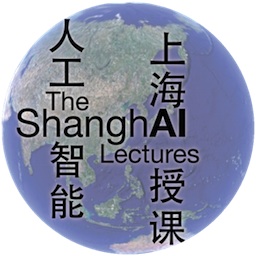
Robohub.org
ShanghAI Lectures 2012: Lecture 7 “Collective Intelligence: Cognition from interaction”

In the 7th part of the ShanghAI Lecture series, Rolf Pfeifer talks about collective intelligence. Examples include ants that find the shortest path to a food source, robots that clean up, and birds that form flocks. In the guest lecture, István Harmati (Budapest University of Technology and Economics, Hungary) discusses the coordination of multi-agent robotic systems.
The ShanghAI Lectures are a videoconference-based lecture series on Embodied Intelligence run by Rolf Pfeifer and organized by me and partners around the world.
István Harmati: Coordination of Multi-Agent Robotic Systems
Control and coordination of multi-agent autonomous systems plays an increasing role in robotics. Such systems are used in a variety of applications including finding and moving objects, search and rescue, target tracking, target assignments, optimal military maneuvers, formation control, traffic control and robotic games (soccer, hockey). Control and coordination are often implemented at different levels. On the highest level, robot teams are given a global task to perform (e.g attacking in robot soccer). Since it is hard to find and optimal solution to such global challenges, the methods presented are based mainly on heuristics and artificial intelligence (fuzzy systems, value rules, etc). On the middle level, the individual robots are given tactics to reach a global goal. Examples include kicking the ball to the goal or occupying a strategic position in the field. On the lowest level, the robot is controlled to perform the desired behavior (specified by the strategy and the tactics). Finally, we also show the main issues and the general ideas related to the efficient coordination of multi-agent systems.
Related links:
tags: AI Lab, Algorithm AI-Cognition, Budapest University of Technology and Economics, c-Education-DIY, cx-Research-Innovation, education, Embodiment, Intelligence, Robotics technology, Rolf Pfeifer, ShanghAI Lectures, ShanghAI Lectures 2012, Swarming, University of Zurich, video





